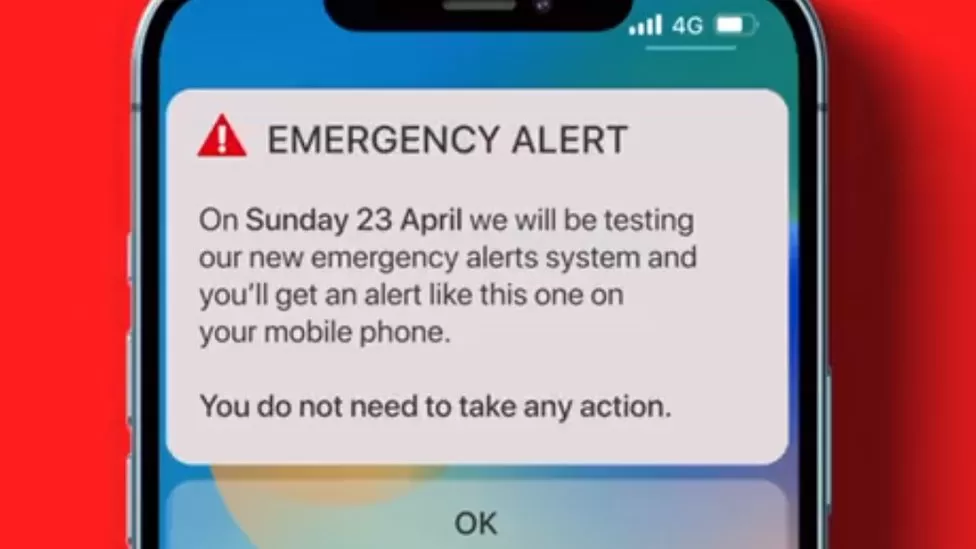A siren will go off on nearly every smartphone in the UK at 3 pm on Sunday 23 April, the government has announced. The 10 seconds of sound and vibration is to test a new emergency alert system. The test had originally been planned for the early evening but was moved to avoid clashing with an FA Cup semi-final, which kicks off at 4.30 pm. The government was also keen to avoid a clash with the London Marathon, which starts at 9.30 am on that Sunday. The alert system will be used to warn of extreme weather events, such as flash floods or wildfires. It could also be used during terror incidents or civil defense emergencies if the UK was under attack.
The minister in charge of the system, Oliver Dowden, said it would be used only in situations where there was an immediate risk to life. In most cases it will be targeted at very specific areas, rather than the entire country and, according to officials, may not be used for months or years. “You are not going to be spammed by the government with constant incoming messages. The bar for this is exceptionally high,” Mr Dowden told BBC News.

He insisted a national test of the system was needed, but the time had been chosen to minimise disruption to people’s lives. “We chose the afternoon for it because that is quieter than the morning when people are more likely to be shopping or attending church services,” said the minister. The test message and alarm is expected to hit 90% of mobile phones in the UK. Phone users can swipe away the alert message or click “OK” on their home screen to continue using their phone as normal.
Wembley stadium
People who have their phones switched off will not receive the message – but it will sound if your phone is switched to silent. After talks with the FA, it was decided to avoid alarming thousands of football fans watching the FA Cup semi-final between Manchester United and Brighton at Wembley stadium, the BBC understands.

The government has also tried to play down concerns that drivers will be distracted by the alerts, potentially leading to accidents, saying evidence from local trials of the alert shows people will wait until they are stationary to check their phones. All 4G and 5G Android and Apple phones are already fitted with emergency alert capability, as similar systems are in use in the United States, Canada, Japan and other countries around the world. But it is possible to turn the alerts off, something domestic abuse charity Refuge is advising vulnerable people how to do ahead of the test.
‘Concealed device’
Emma Pickering, senior operations tech abuse manager at Refuge, said: “Our concerns are centred on the very real risk to survivors of domestic abuse who may have secret or secondary phones hidden within the home, which they must ensure are not discovered by their perpetrators. “These devices can be a lifeline for women who need to access support or flee their abuser.” She added: “These alerts will come through as a loud siren even if devices are on silent and could alert an abuser to a concealed device.” Mr Dowden said the government had held talks with domestic abuse charities and taken their concerns on board when planning a publicity campaign ahead of 23 April.
![]()





